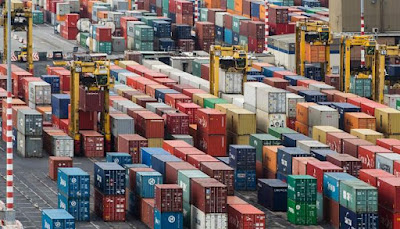5 Essential Steps to Secure Your Export Business Finances
Running a commodity trading business is a thrilling journey, offering both substantial rewards and inherent risks. To ensure sustained success, it's imperative to adhere to a set of principles that can fortify your position and shield your business from common financial pitfalls. Despite the prevalence of best practices for secure transactions, many exporters find themselves straying off course, leading to substantial financial setbacks. Whether you're a seasoned exporter or just stepping into the world of international trade, mastering the art of financial security is paramount.
Here, we delve into six indispensable steps to safeguard your funds and navigate the complexities of the export business successfully.
1. Ensure Payment Security
Shipping commodities without a guarantee of payment is a cardinal sin in the export business. The most robust and secure method to ensure payment and tranquility for the exporter is through an irrevocable letter of credit. This financial instrument involves the international buyer blocking funds in their bank account for a specified period. The funds are released only upon meeting pre-established conditions, such as submitting required documents or meeting specific criteria. Despite the advantages of this method, some exporters still take the risk of relying on nothing more than a contract, which can be challenging to enforce.
Unless dealing with a reputable organization known for its consistent payment history, never risk supplying goods without a letter of credit. It's crucial not just to accept the letter blindly; negotiate its terms, have your bank review the verbiage, and ensure there are no loose ends. Failure to negotiate a reasonable and achievable letter of credit terms can leave exporters vulnerable to non-payment.
2. Conduct Due Diligence on Buyers
One of the most common financial mistakes exporters make is neglecting due diligence on potential buyers. Rushing into agreements without understanding the buyer's capacity to pay, track record, or reputation can lead to significant financial losses. Just as one carefully selects friends, it's crucial to choose business partners wisely.
Before committing to a buyer, gather comprehensive information about their financial standing, payment history, and overall business ethics. Knowing whether a buyer will act in the best interest of both parties is vital for a successful and secure transaction. Ignoring this step is a fast track to potential financial ruin, particularly if the buyer's values and beliefs are not aligned with ethical business practices.
3. Invest in Insurance
Many exporters make the mistake of forgoing insurance, exposing themselves to significant risks beyond their control. While a letter of credit provides a layer of security, insurance is the safety net that ensures reimbursement in the event of unforeseen circumstances such as theft, war, pandemics, currency fluctuations, and more.
Comprehensive insurance typically incurs a cost ranging from 0.1% to 1% of the total cargo value. The reluctance of some exporters to pay this seemingly small fee can result in substantial financial losses. To maximize protection, consider both comprehensive clauses. A Marine Insurance and an Export Credit Insurance Plan. These additional layers of security provide coverage in situations where goods are compromised or the buyer's bank refuses payment.
4. Negotiate Contracts Wisely
The art of negotiation is a cornerstone of successful export transactions. Many exporters make the mistake of accepting contracts sent by international buyers without careful review or negotiation. This oversight can lead to unfavorable terms and potential disputes.
To protect your interests, always have a mutually beneficial contract prepared, preferably with the assistance of a legal professional. This contract should address the concerns and expectations of both parties, creating a fair and transparent agreement. If a buyer insists on providing their contract, engage in thorough negotiations, consult with your lawyer, and ensure there are no ambiguities that could lead to disputes later on.
5. Undergo Export Training
Embarking on an export business without proper training is akin to navigating uncharted waters blindfolded. While some exporters may stumble upon success through trial and error, relying solely on luck is a high-stakes gamble. Investing time in learning from experienced professionals and understanding the intricacies of international trade significantly enhances your chances of success.
Around 90% of exporters face financial setbacks on their first attempt. Avoid becoming a statistic by prioritizing education in international trade. Learning the ropes from seasoned experts equips you with the knowledge and skills needed to make informed decisions and navigate potential pitfalls.
In an industry where financial success and failure hinge on the minutest details, hope is not a strategy. By diligently following these six steps, exporters can establish a robust foundation for their business, minimize financial risks, and position themselves for sustained success in the dynamic world of international trade. Remember, informed decisions and strategic planning are your best allies in the pursuit of export excellence.
In the pursuit of export excellence, education plays a pivotal role in arming aspiring exporters with the knowledge and skills needed to navigate the intricacies of international trade. One notable institution that stands out in this regard is iiiEM Nashik - the Best Export Import Course in Nashik. Recognized for its commitment to providing comprehensive training in export-import practices, iiiEM Nashik equips individuals with the expertise required to thrive in the competitive world of global commerce.

.jpg)


Comments
Post a Comment